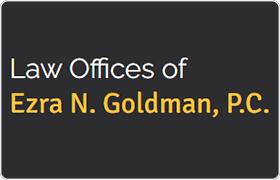Inkster DUI-DWI Lawyer, Michigan
Sponsored Law Firm
-
 x
x

Click For More Info:
-
Law Offices of Ezra N. Goldman, PC
24725 W 12 Mile Road #110 Southfield, MI 48034» view mapDUI-DWI Juries Love Us!
We pride ourselves on the quality of our service. Resolving your case may require an expertise beyond the law and we are here to help in every aspect.
800-879-4170
David Eric Karson
✓ VERIFIEDDivorce, Custody & Visitation, Civil Rights, Bankruptcy & Debt, DUI-DWI
David Karson is a practicing lawyer in the state of Michigan handling a variety of legal matters.
Brendon Keith Debolski
Criminal, DUI-DWI, Traffic, Felony
Status: In Good Standing Licensed: 17 Years
FREE CONSULTATION
CONTACTNickolas Darin
Divorce & Family Law, Misdemeanor, Felony, DUI-DWI
Status: In Good Standing Licensed: 12 Years
FREE CONSULTATION
CONTACT Ezra N. Goldman Southfield, MI
Ezra N. Goldman Southfield, MI Practice AreasExpertise
Practice AreasExpertise
